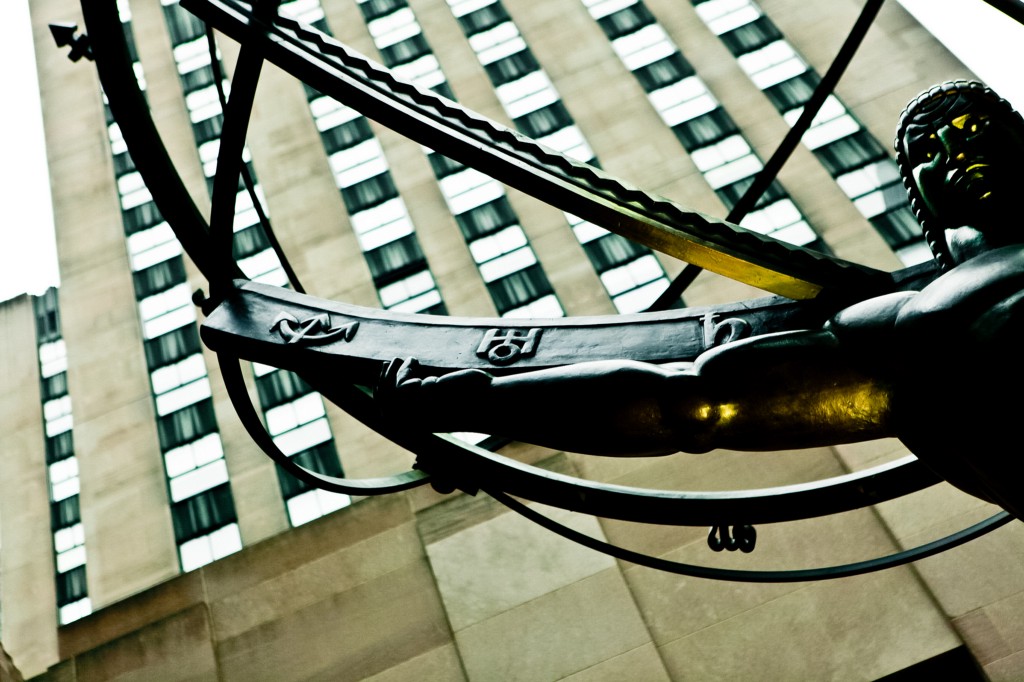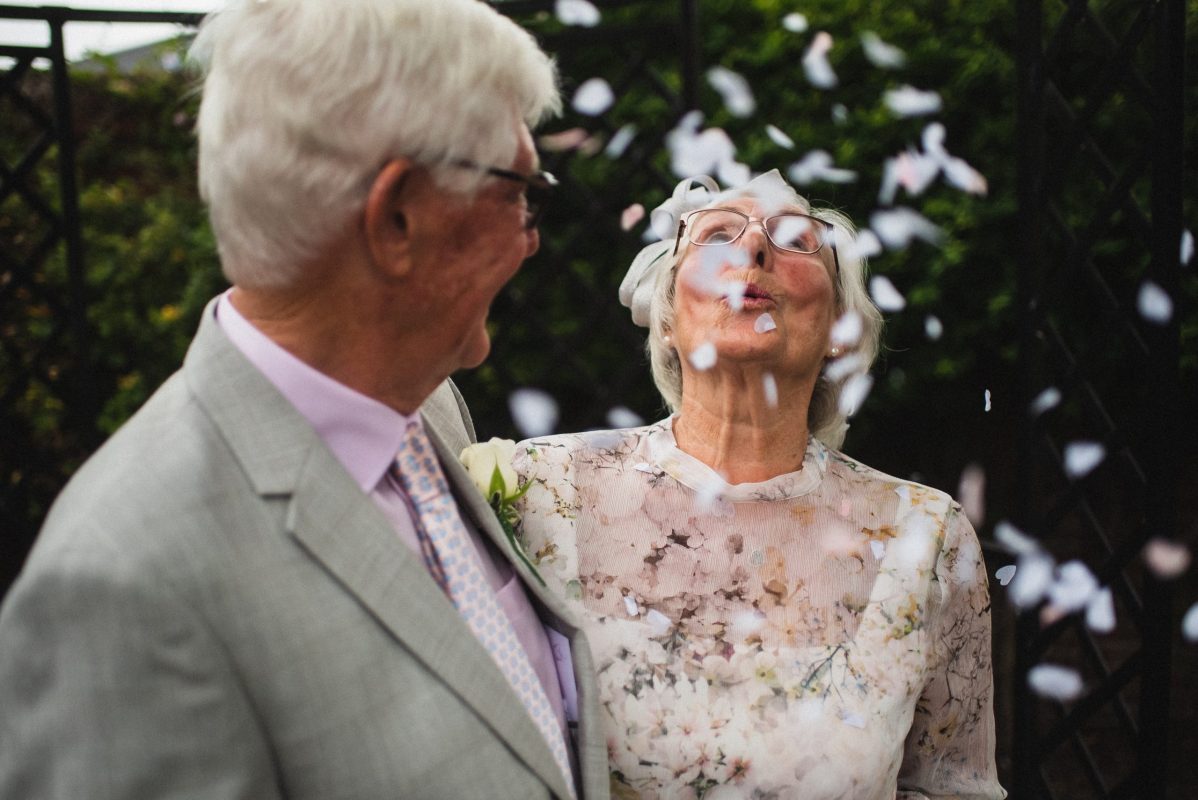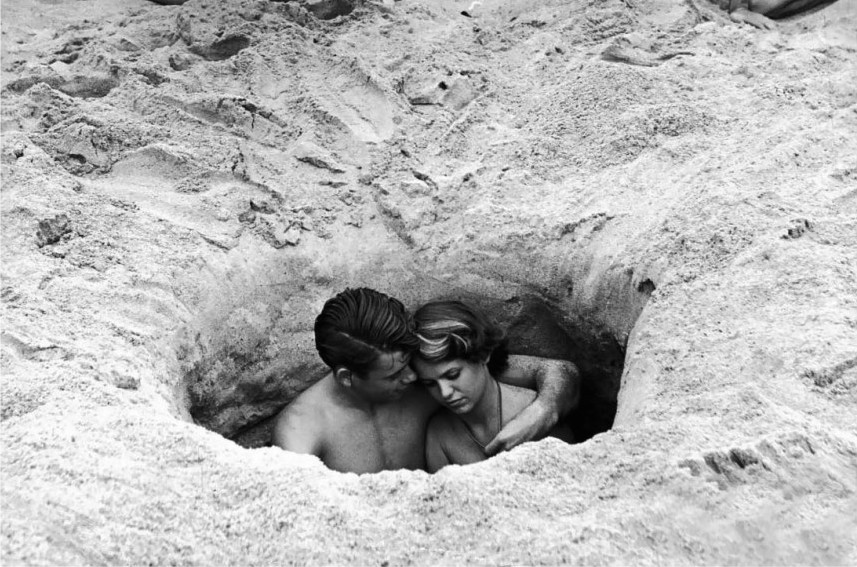Novel Gazing
Believe It or Not, I Learned Something About Love and Virtue from “Atlas Shrugged”
Believe It or Not, I Learned Something About Love and Virtue from ‘Atlas Shrugged’Although I had to misunderstand it first

Novel Gazing is Electric Literature’s personal essay series about the way reading shapes our lives. This time, we asked: What’s a book you misunderstood?
I misunderstood three things the summer I ran off to New Orleans in 2009. The first was love. The second was goodness. The third was Atlas Shrugged.
It was my first summer after college, and I returned to my small town in Wyoming to work at a local grocery store and deli. I chopped and stacked piles of cured meats and pulled the guts out of rotisserie chickens for eight hours a day. It was a monotonous $7.50/hour, punctuated only by daydreams about the big story that I was going to write.
After about a month on the job, I learned that my female co-workers were making 50 cents less than me an hour. I promptly confronted the store owner about this, and when he denied any knowledge of what was going on, I typed a strongly-worded letter, taped it to his door, and quit my job. Then I ran away to New Orleans to build houses with Habitat for Humanity.
At this point, you’re probably getting a pretty good sense of the type of person I was. I was a perpetual do-gooder, blindly throwing myself at any cause that happened to get in my path. Building houses post-Katrina, building latrines in Kenya, mentoring troubled youth — this was where I put my energy. At the time, I believed that my participation (or lack thereof) in things was important, that in order to be good you must perform goodness.
What I didn’t realize at the time was that my feelings about do-gooding were inextricably tied to my self-hatred.
But before we can talk about that, we have to talk about how Atlas Shrugged and I made our way to New Orleans. I’d ordered the book online after I’d seen an internet forum thread that practically yodeled its praises. A big part of my performing goodness was reading books that I believed would teach me how to be good. And what better book to bring on a trip to do good than a door-stopping guide to capitalism?
I remember fondly the colorful front facade of the small hostel that greeted me when I stepped from my airport taxi. While I forget the name, it had a small placard hanging from the front that just welcomed you right in. The place had a constant influx of new arrivals from various countries, plus a few old hands. The former were people like me (Rand-boy) and a young chain-smoking man who was emulating Kerouac; the latter included a recent USMC veteran who sat by the pool that nobody swam in all day and a pot-smoking couple who worked in movies.
I smoked pot for the first time with that couple, I got drunk for the first time with the veteran (we ate watermelon soaked in vodka). While I did all this, I read and misinterpreted what Ayn Rand was saying, all the while trying to look deep while I was doing it.
Rand was writing that all our problems arise from us not doing capitalism right. Worth, in Atlas Shrugged and her other work, is directly connected to creating things in your mind and making them real objects. Your worth is in what you do. It sounds nice, especially to a teenager. I think this quote (when we’re being introduced to John Galt’s utopia) sums it up:
Miss Taggart, we have no laws in this valley, no rules, no formal organization of any kind. We come here because we want to rest. But we have certain customs, which we all observe, because they pertain to the things we need to rest from. So I’ll warn you now that there is one word which is forbidden in this valley: the word “give.”
For Rand, the ultimate failing of the world is that people do things for other people rather than themselves. We create worth for others, in her metric, by creating it for ourselves with impunity. In this framework, cooperation is not the thing that got us out of the caves — will to power and creativity did.
I read somewhere once about the teenage impulse to point at the world and call bullshit. My teenage impulse was different. My impulse was to point at myself and call bullshit. Every single page, from John Galt’s ridiculous million-page monologue to the most unromantic relationship of all time between two characters whose names I’ve forgotten, felt like an indictment of who I was. A useless do-gooder. A “giver.” Secretly, I believed it. If I truly wanted to help others, I would help myself first.
During the day, I would install soffit (the material that allows a roof to vent on the eaves of a home) on the sides of quick-build relief housing for victims of Katrina. At night, I would read a bristling fusillade criticizing the weak and the downtrodden. At the time, the contradiction meant little to me.
Then, I met Renna.
Renna was German. She was beautiful, but that was secondary. She had seen the movies I had seen, read the theater that I cared about, and carried herself with a grace and intelligence that I still try to emulate. The first second I met her, I was in love, and in the second second, I knew that I was never going to be enough, because a person that thinks in binaries is uninteresting to those who don’t.
The first second I met her, I was in love, and in the second second, I knew that I was never going to be enough.
We met because people meet in places like this, and I had borrowed scissors from the front desk to cut my fingernails (like a barbarian, which the desk clerk informed me of after she snatched them from my hands having seen what I was doing). After this little tiff, Renna walked over and struck up a conversation with me. She did not agree with the clerk’s shaming.
For the next few weeks, I adapted to a routine: wake up, go build houses and explore the city a bit, return to the hostel, and follow Renna around like a puppy dog.
When you’re a teenager, all you can see is the bullshit and the suffering. When you become an adult, you learn to ignore it. You learn the impracticality of caring when it comes to suffering. How can one person take on the weight of the world? One person is so small, so insignificant, so overblown with their sense of importance.
What I hadn’t realized at the time was the bald-faced cruelty of a philosophy like Objectivism. It caters to self-hatred, and the hatred of the other because it divides people into the weak and the strong, the capable and the incapable. You are in one camp or the other. And when you can only see the world in two extremes — bad and good, love and hate — it’s a simple switch from one extreme to the other.
When you can only see the world in two extremes — bad and good, love and hate — it’s a simple switch from one extreme to the other.
It violates one of the most important values I now hold dear: that every human being is a unique entity. There will never be another like you, twee as that sounds. That is the true crime that a philosophy like Objectivism caters to — it tells the weak (i.e. everyone) that to bond, to cooperate, to serve others and ask the same in return, is the tack of the feeble-minded and frail. Contributing to capitalist machinery that is driven by human suffering is not a choice for most of us, but to pump our fists as it chews its way through our neighbors and loved ones is a special type of dark and cruel ideology.
Renna and I connected on social media at the end of her trip, and I think she felt something for me before she left, but I don’t think that matters. Don’t mistake this for some sort of story about how if I’d been enough of a bad boy, enough of a man, I would have gotten what I wanted. That’s violent, masculine nonsense, driven and reinforced by works like Atlas Shrugged. Weak loses, strong wins. That philosophy is reductive and demeaning. I did not understand it at the time, but the truth was that I had no idea what I wanted. I was a blank slate, allowing others to paint my beliefs for me.
Because of this, I failed Renna and myself. The truth was that I couldn’t even see her. My inattention made her a non-character, an object on my path to whatever I was seeking — sex, attention, validation, I still don’t know what it was. But what likely happened was that I was so consumed with my thoughts about self-worth, my thoughts about whether I was valuable or not, I failed to see a person.
I had no idea what I wanted. I was a blank slate, allowing others to paint my beliefs for me.
In the height of my self-hatred, I actually believed and internalized what this book had to say. That we are transactional beings, that our worth is in our labors and our service to our goals and God-given skill. That somehow, if I quit my job in service of a principle, that if I went and did ostensibly “good” things, that if I was kind enough, nice enough, skilled enough, what I wanted would simply make itself available to me — the labor itself would craft a way forward. I would get the girl, and I would get love. Because I had earned it. Ultimately, it was not my doing good that was the problem, it was my reasoning.
Something that I’ve learned after many long and painful lessons (and continue to learn daily), is that the beating heart of love is in asking. It is not in proving or earning. You don’t “get” love. Loving and being loved is a profound act of bravery and vulnerability because you ask simple questions that can never be fully answered: “Will you care for me? Will you think about me before yourself? Will you cooperate with me?”
Maybe I didn’t read Atlas Shrugged wrong at all. Maybe I read it exactly the right way. But reading in this way leaves you with an empty heart. There is always more work to be done. Goodness is hard, and there is no reward for it. There is no reward in a life well-lived. Goodness and kindness are only worthwhile because the alternative is an impoverished life spent reducing everything to objects and obstacles, including things you claim to love.
Somehow, John Galt didn’t manage to get that across.








